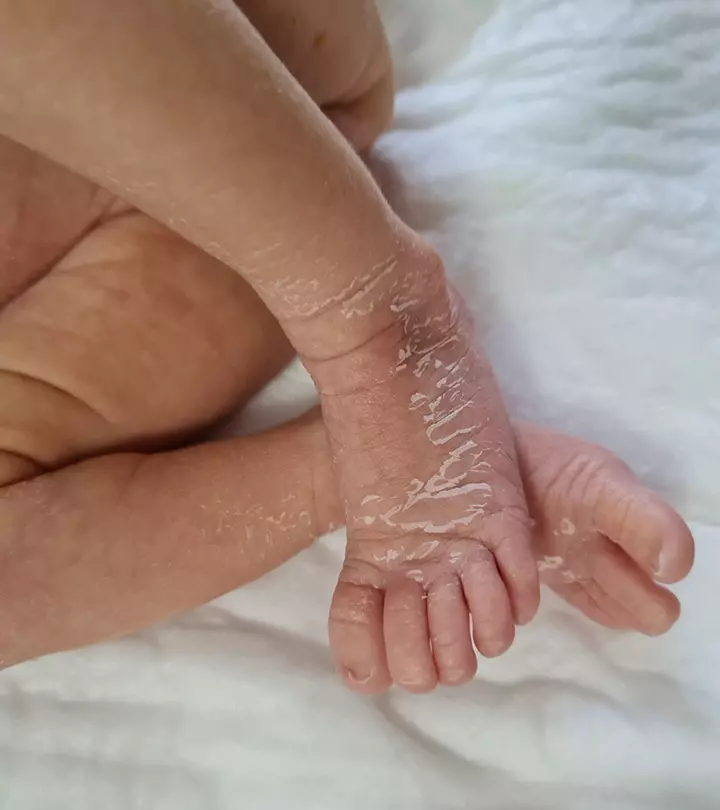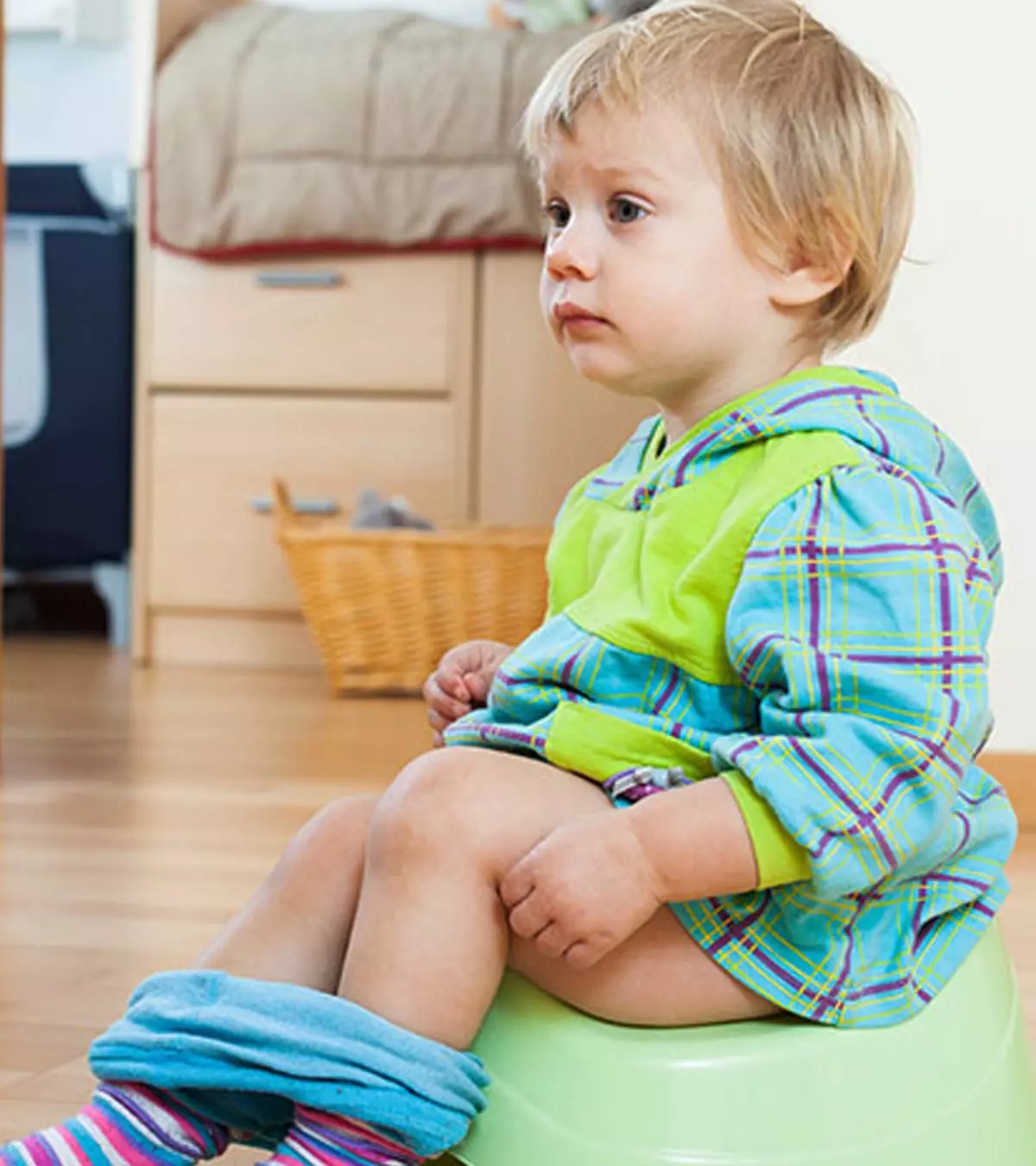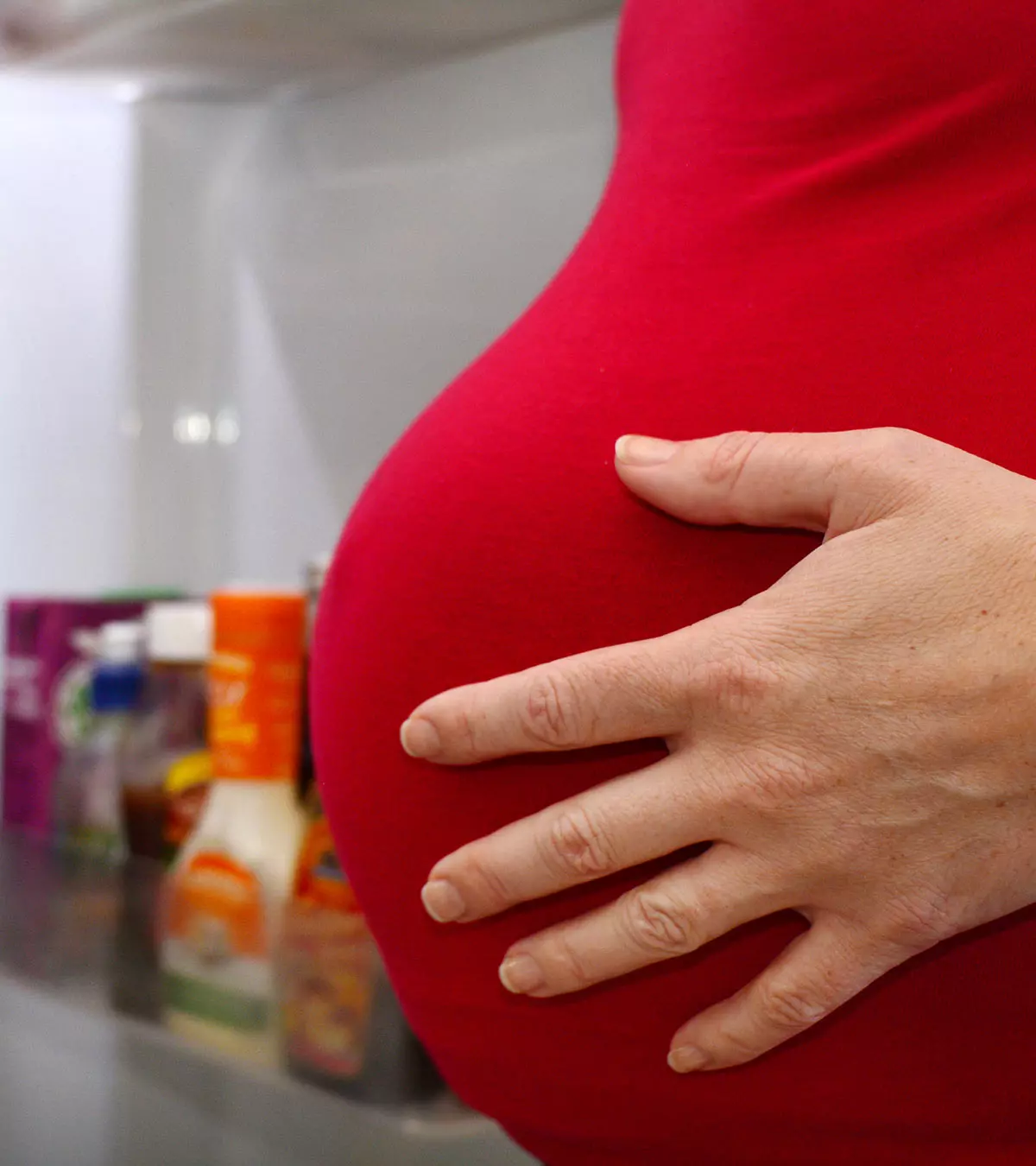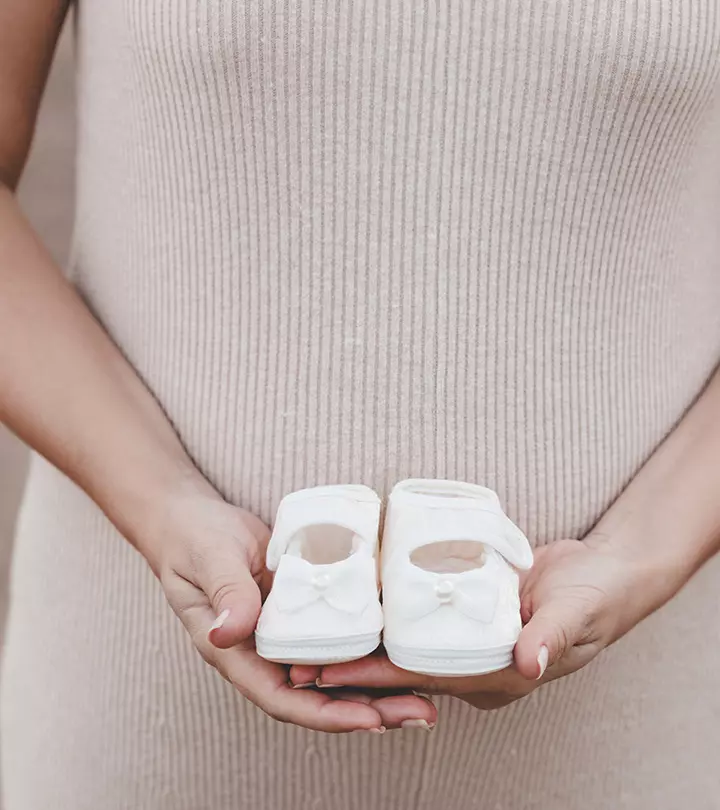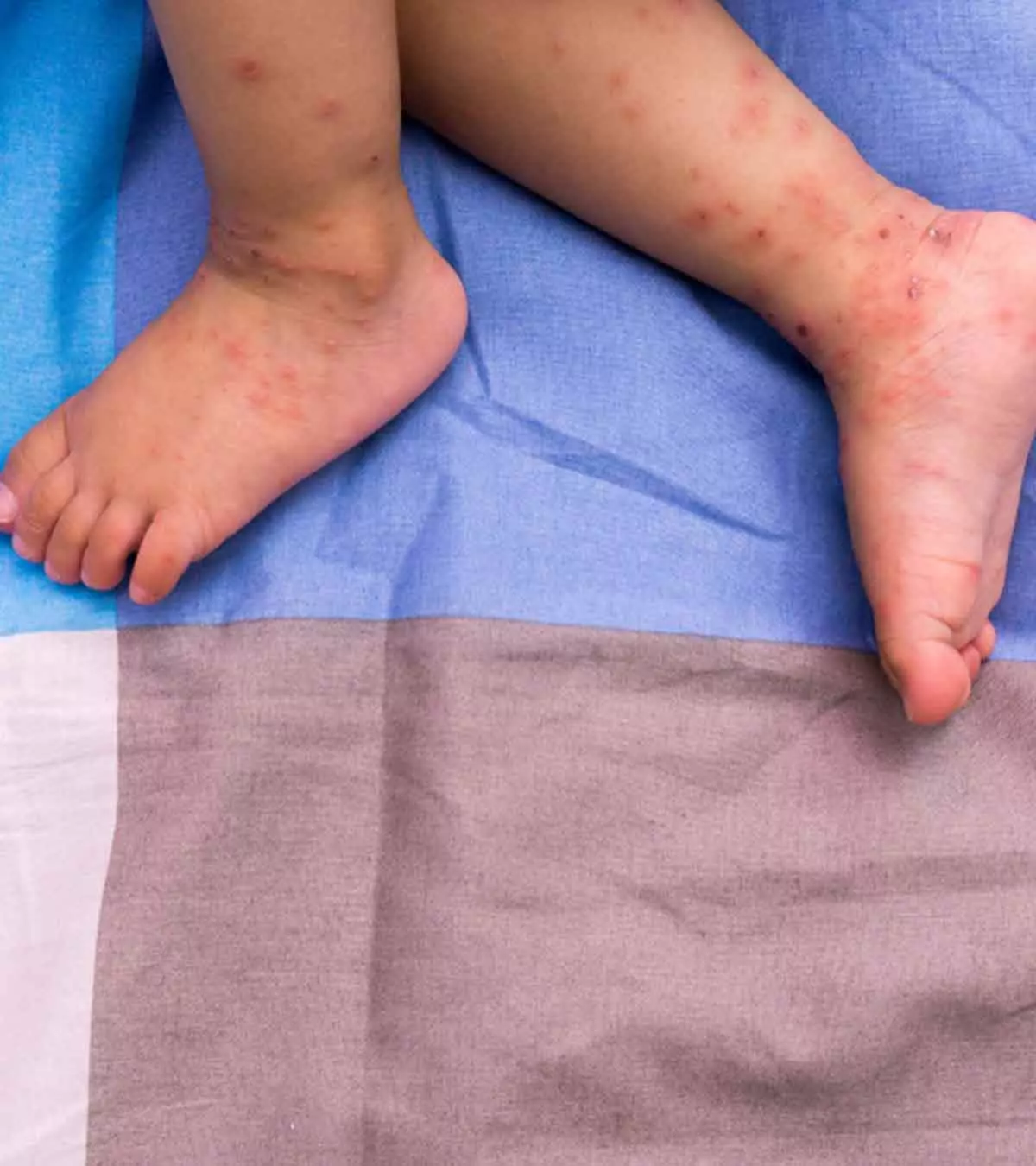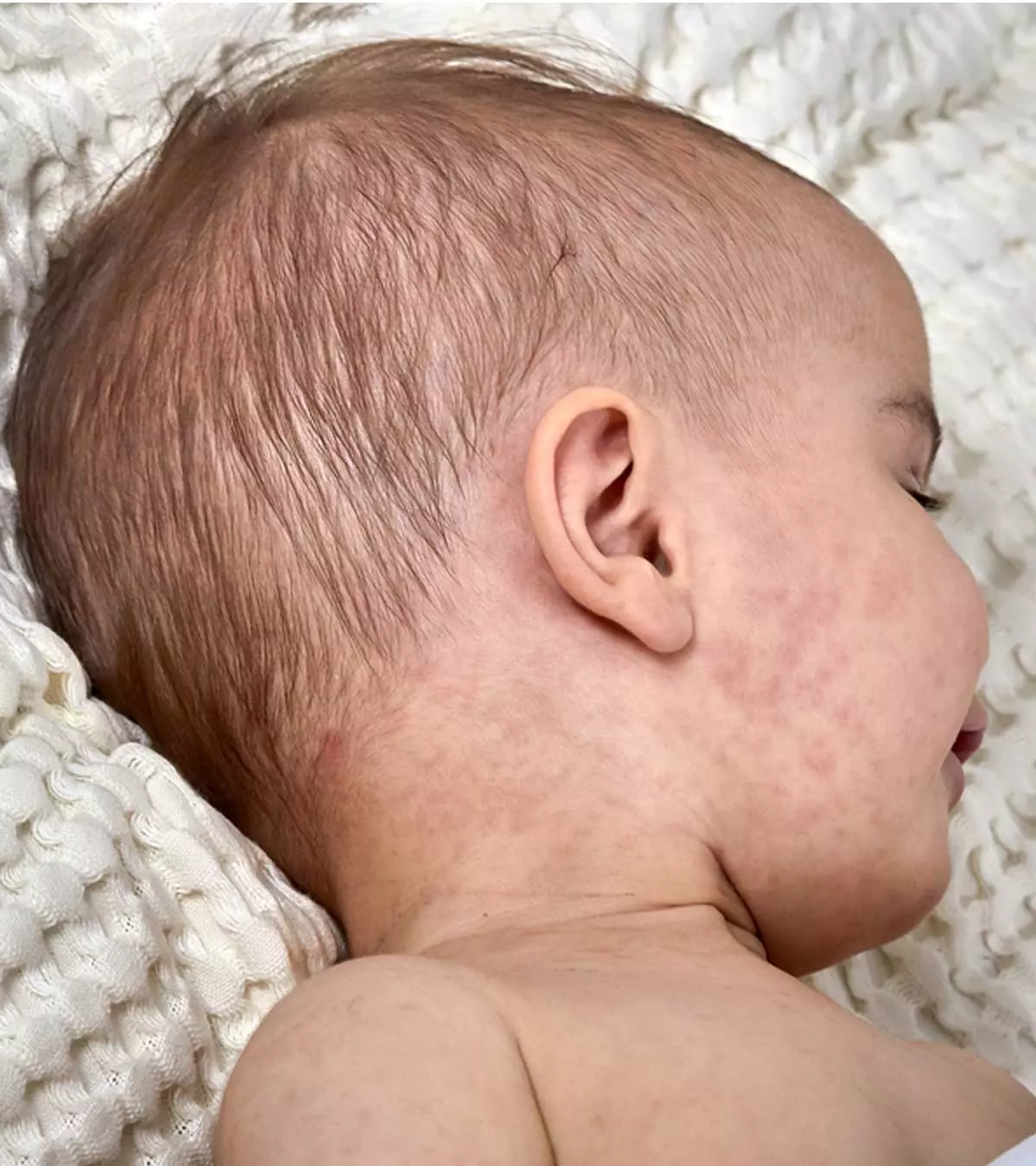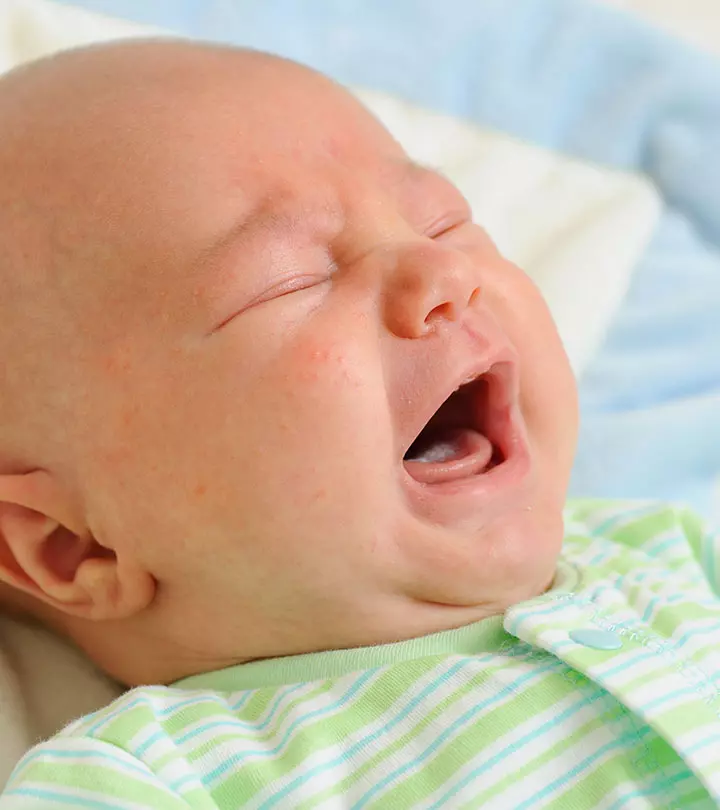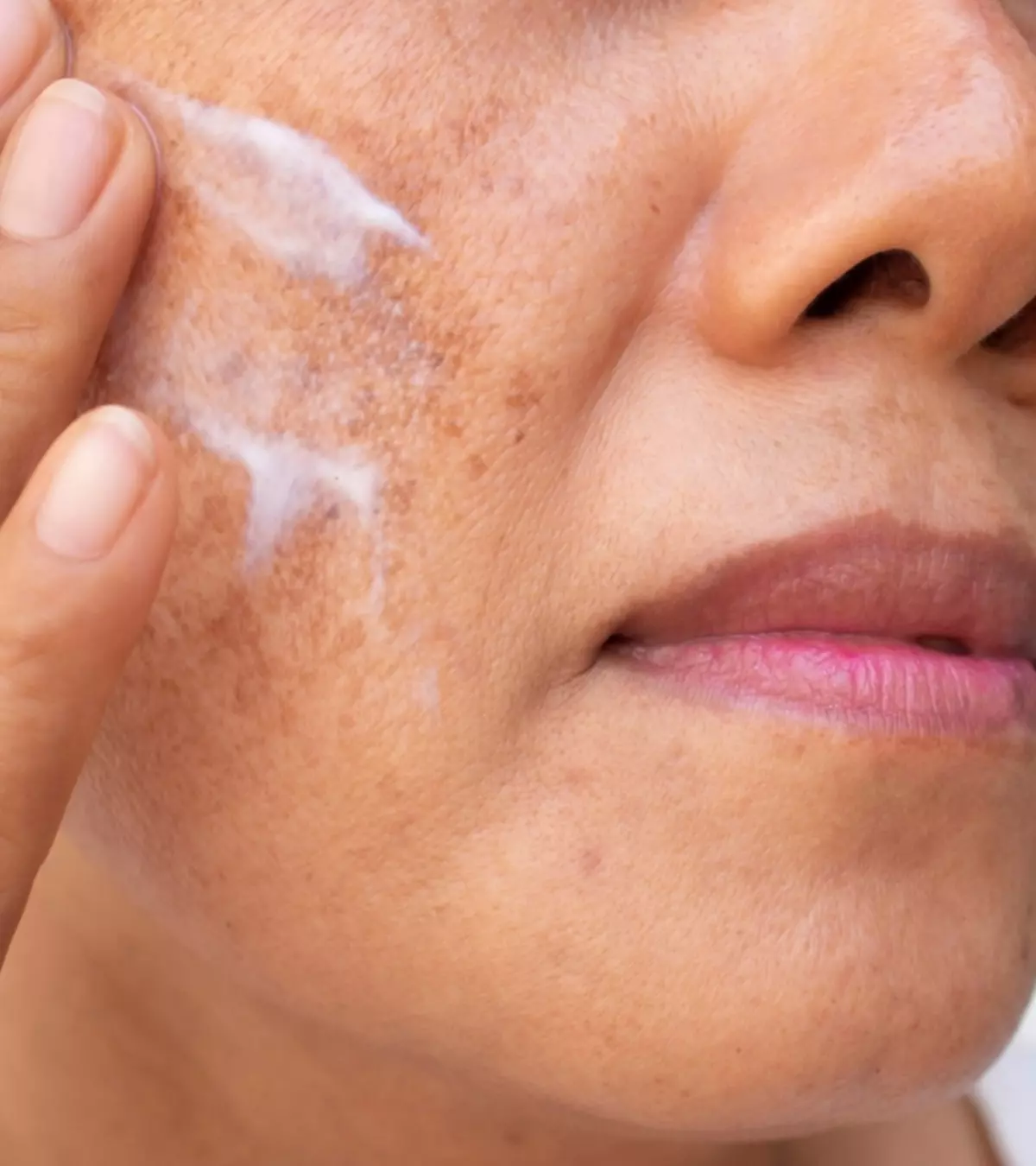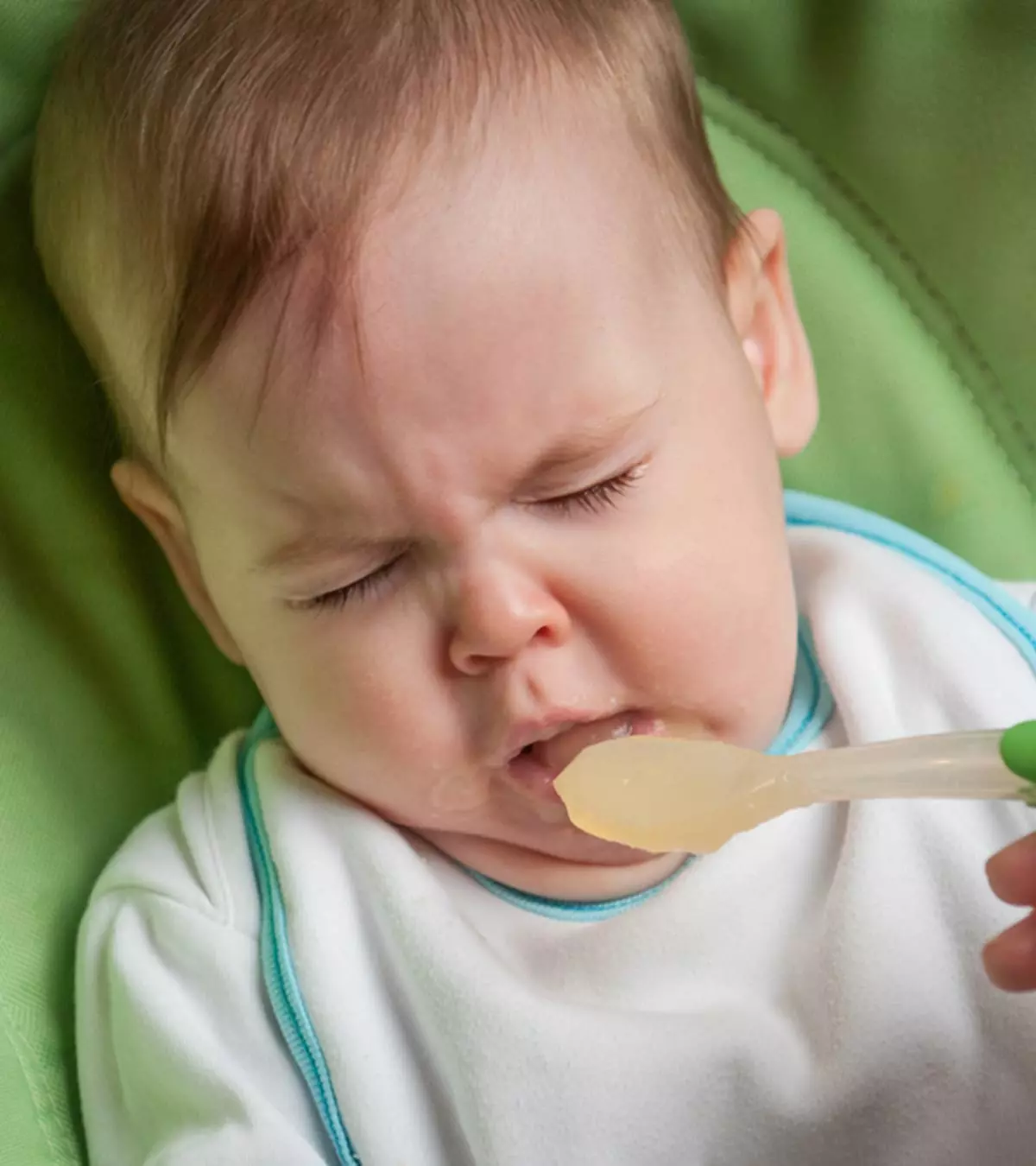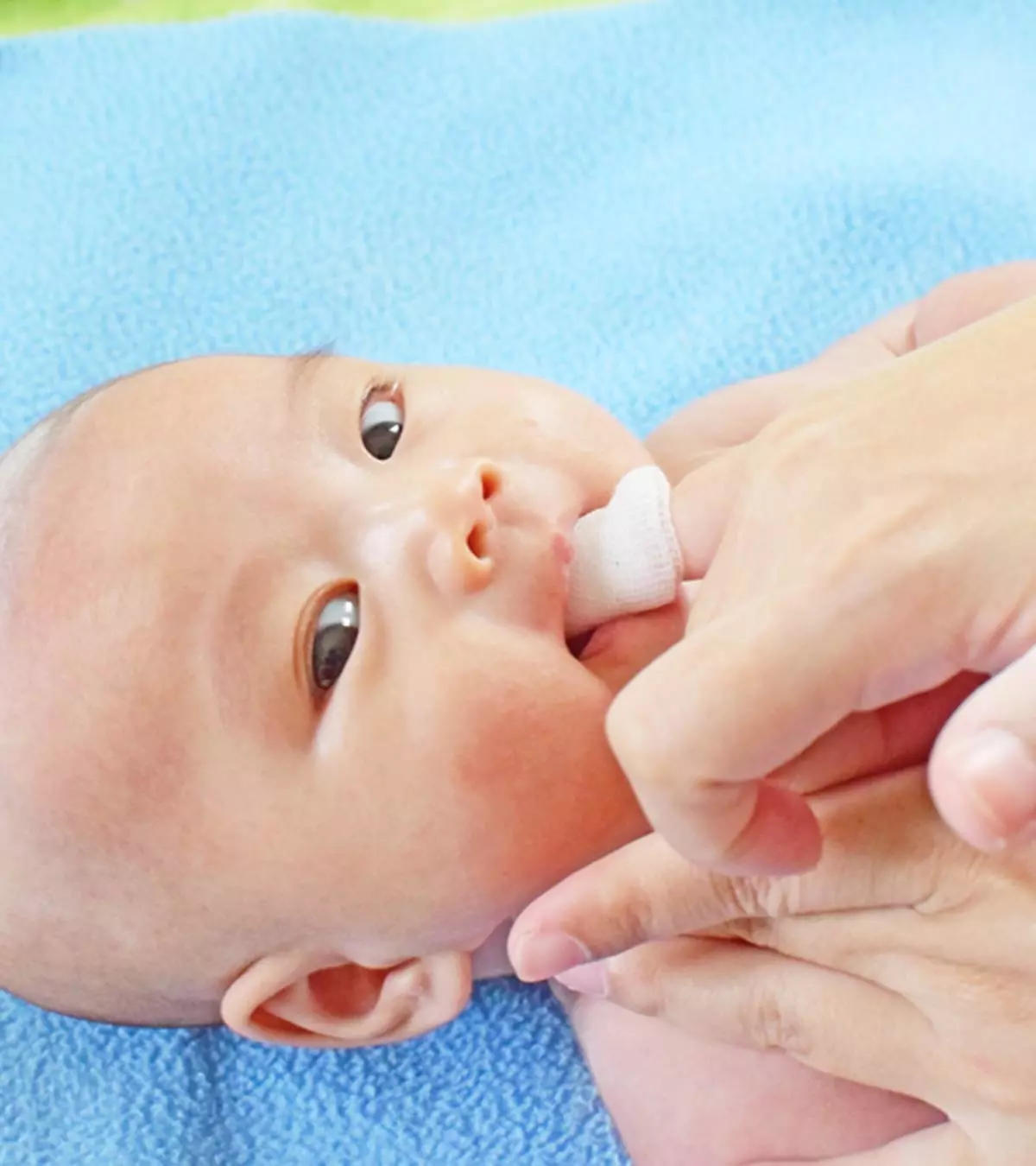
Image: Shutterstock
Oral hygiene is an essential part of infant care, even before they begin teething, since oral care also involves the gums and tongue. Hence, it is important to discuss how to clean a baby’s tongue for optimal oral hygiene. Cleaning your baby’s tongue can help prevent bad breath, minimize the risk of oral infections, and contribute to your baby’s overall health.
The New York State Department of Health states that it is important to take proper care of your child’s teeth and dental (oral) health right from birth (1). However, oral care for infants is often neglected as it is usually misunderstood as merely teeth care.
In this post, we discuss the importance, tips, methods, and precautions to take while cleaning a baby’s tongue.
Key Pointers
- Cleaning a baby’s tongue removes breast milk sugar from the mouth, ensuring good oral hygiene and prevention of oral thrush.
- Clean the tongue in a circular motion with your finger using a washcloth dipped in warm water.
- Engaging the baby, cradling them in your arms, keeping your nails short, and being gentle are some tips that will help make the cleaning process easy.
Why Do You Need To Clean Your Baby’s Tongue?
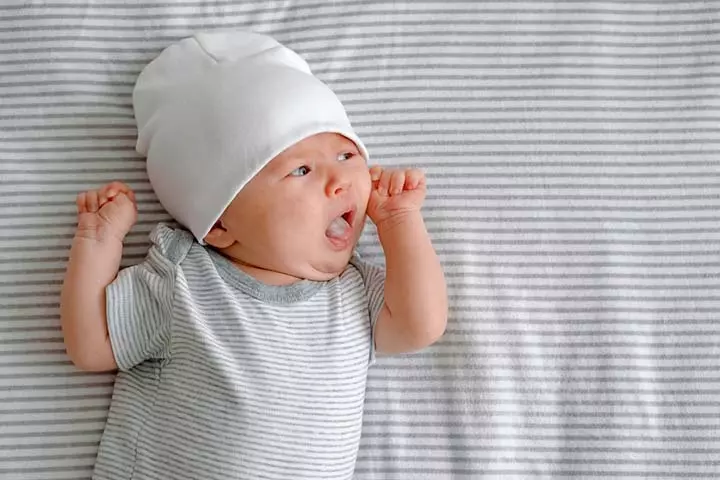
Image: Shutterstock
A healthy mouth is important for a healthy body and an essential part of infant oral care. Oral hygiene maintenance routine should start in infancy. A clean environment in the mouth could eventually help keep the erupting teeth healthy. Here are a few more reasons to clean your baby’s tongue.
- Babies are breastfed from their very first day of life. Breast milk has sugars, just like the formula (2). Therefore, cleaning the baby’s tongue and gums after feeding is essential to remove any milk residue.
- Oral thrush in babies is a fungal infection characterized by white patches on the tongue, cheek, palate, and gums. Regular cleaning of the tongue and other soft tissues helps in maintaining a clean oral environment and could help avoid fungal infections (3).
- Cleaning a baby’s tongue at a young age makes them habitual to the feeling of oral hygiene maintenance tools like toothbrush, tongue cleaner, etc.
- It could also teach the baby the importance of healthy oral hygiene.
How To Clean A Baby’s Tongue: A Step-By-Step Guide
Be gentle and patient while cleaning your baby’s tongue. Your baby might initially suck or bite your fingers, thinking it to be food. It takes a few days for the baby to get used to it.
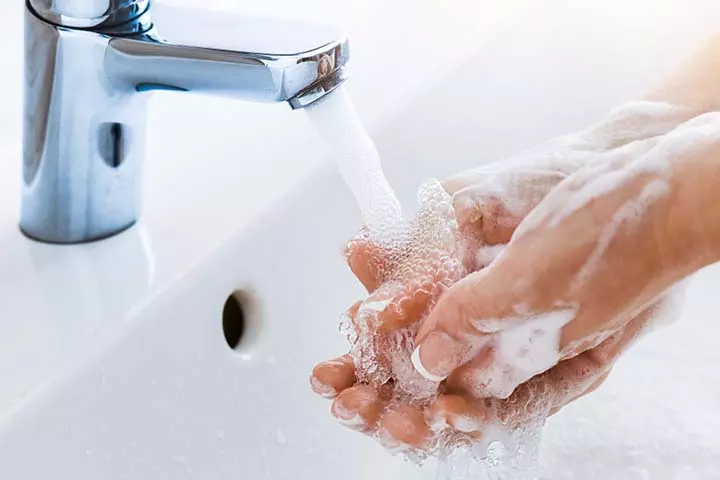
Image: Shutterstock
- Wash your hands thoroughly with soap and water.
- Dip a clean washcloth or gauze pad/cloth in warm water and wrap it around your index finger.
- Carefully open your baby’s mouth and insert your finger inside.
- You can retract the baby’s lower lip to enable him/her to open the mouth.
- Move your finger circularly over the tongue while taking care not to slide the finger towards the baby’s throat.
- If there are any teeth present, then clean the teeth with the gauze.
- Clean the baby’s gums and the insides of the cheek too.
- While cleaning the tongue and the mouth, make sure to check for the presence of any stubborn thick white tongue coating that won’t leave the surface despite wiping. It might be an oral thrush and might need medical attention.
It is suggested to clean the baby’s tongue and mouth at least once a day to maintain proper oral health. A gauze piece is most commonly used to clean a baby’s tongue. You may ask your dentist if they suggest using any finger toothbrushes or specific tongue cleaners for babies.
Do You Need A Tongue Cleaner For Your Baby?
Tongue cleaners or tongue scrapers are not recommended for babies.
 Point to consider
Point to considerTips For Cleaning The Baby’s Gums
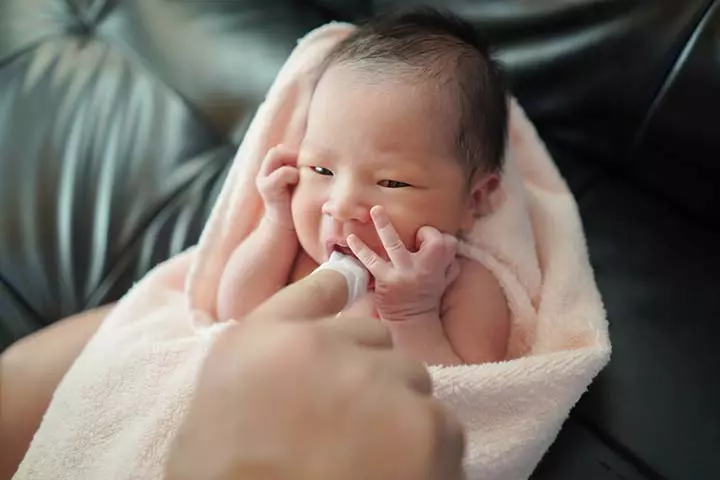
Image: Shutterstock
Babies often do not cooperate while cleaning their gums, but these tips might make the process a bit easier.
- Engage and distract your baby while cleaning the gums.
- Cradle them in your arms so that you have a better grip on the baby, and it is easier for you to clean them.
- Wait until your baby is in a good mood before starting to clean his/her tongue and gums.
- For very young babies, it is difficult to determine the last meal of the day. So it might be a good idea to fix a time in the day. It helps build a sense of routine for the baby.
 Quick tip
Quick tipPrecautions To Take While Cleaning Your Baby’s Tongue
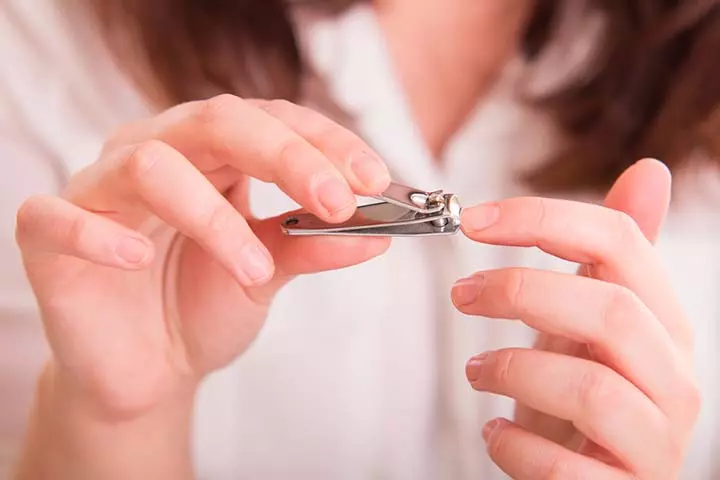
Image: Shutterstock
The following precautions while cleaning your baby’s tongue can help avoid any injury to the baby.
- Try using a clean and soft cloth piece (wash cloth) for your baby’s mouth to avoid the risk of any infection and ensure gentle cleaning.
- Keep your nails short and clean to avoid any injury to the baby’s delicate tissues.
- Do not forcefully clean the baby’s tongue
Frequently Asked Questions
1. When should I start cleaning my baby’s mouth?
You may start cleaning your baby’s mouth when they are three months old. Gently wiping their gums twice daily will ensure your baby is ready for brushing (with baby-safe toothpaste and toothbrush) when the first tooth appears (4).
2. Can I use glycerine to clean my baby’s tongue?
No, you need not clean your baby’s tongue with glycerine (5).
3. Is using a tongue scraper on a baby’s tongue safe?
Using a tongue scraper on a baby’s tongue is not recommended. Tongue scrapers are designed for adult use and may be too harsh or cause discomfort for a baby.
4. Can cleaning a baby’s tongue cause them discomfort or pain?
When done gently and with care, cleaning a baby’s tongue might not cause discomfort or pain. However, every baby is different, and some may be more sensitive. If your baby shows signs of discomfort, such as crying or pulling away, you may need to adjust your cleaning technique or try again later.
5. Are there any risks associated with cleaning a baby’s tongue?
When done correctly, the risks associated with cleaning a baby’s tongue are minimal. However, being gentle is important to avoid any potential injury or discomfort. Avoid using excessive force or rough materials that may irritate the baby’s tongue.
6. What should I do if my baby resists tongue cleaning?
If your baby resists tongue cleaning, choose a time when they are calm and content, such as after a meal or nap. Use a soft, damp cloth or a silicone finger brush and gently clean their tongue while speaking soothingly. You could distract them with a favorite toy or cheerful song. Be patient and persistent as they adapt to this routine,and try to make the experience enjoyable.
7. How often should I clean my baby’s tongue?
It’s important to clean your baby’s tongue at least twice a day to remove milk residue and maintain oral hygiene.
Tongue cleaning is an essential part of oral hygiene that is often neglected. Routine tongue cleaning can prevent your baby from developing mouth infections and give way to healthy teeth and gums. So follow the above tips to learn how to clean a baby’s tongue safely and thoroughly to prevent injury and discomfort. Remember to use clean hands and materials for a baby’s tongue cleaning and perform it regularly. If you notice any unusual developments in their mouth, consult your child’s doctor for better management.
Infographic: Safety Measures For Cleaning Baby’s Tongue Properly
Cleaning a baby’s tongue may not be easy, with some babies being reluctant or disinterested. Therefore, you must be more careful to prevent any mishappenings. To help you with the process, we have listed some critical safety measures to follow while cleaning a baby’s tongue. Illustration: Momjunction Design Team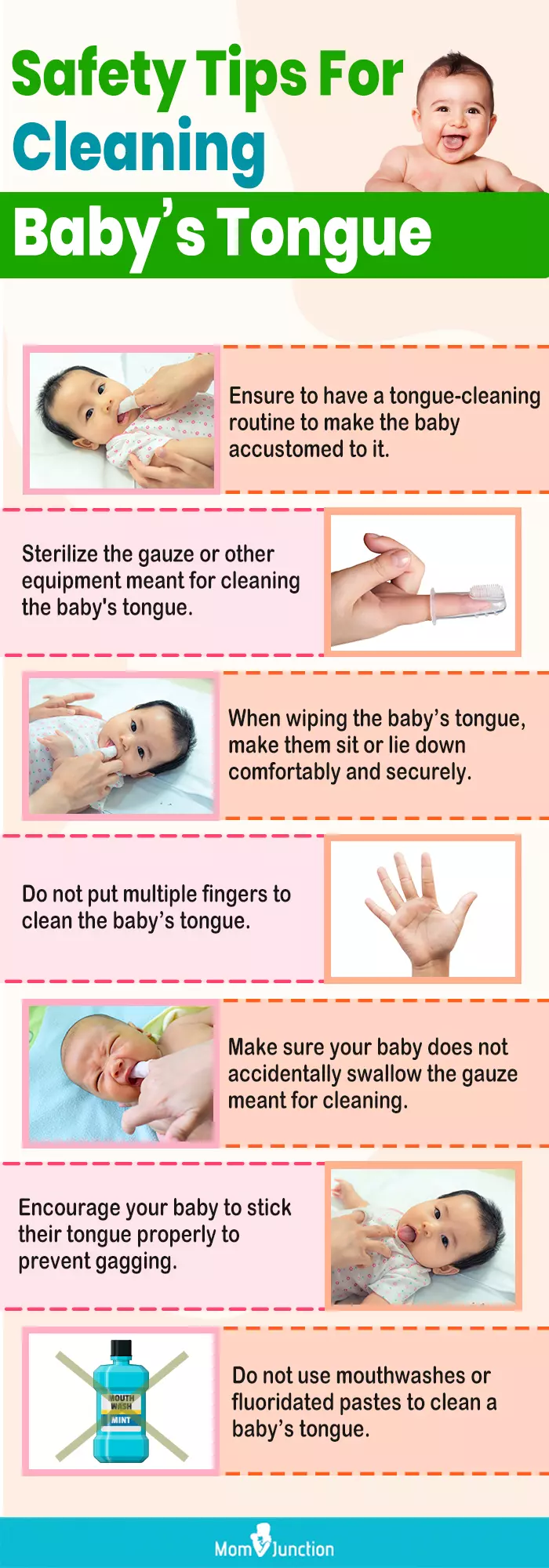
Illustration: How To Clean A Baby’s Tongue: A Step-By-Step Guide

Image: Dall·E/MomJunction Design Team
References
1. Infant and Children’s Oral Health; The New York State Department of Health
2. Breastfeeding: 6 Things Nursing Moms Should Know About Dental Health; American Dental Association
3. Thrush—Child; Winchester Hospital
4. Dental care for babies; Raisingchildren
5. Normal Variations in a Newborn; Pregnancy, Childbirth, and the Newborn
Community Experiences
Join the conversation and become a part of our nurturing community! Share your stories, experiences, and insights to connect with fellow parents.
Read full bio of Dr. Anita Bakshi
Read full bio of Dr. Ritika Shah
Read full bio of Rohit Garoo
Read full bio of Ghazia Shah












